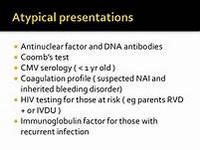
ATHEROSCLEROSIS
FOODS THAT HARM
Processed foods that contain trans fatsFOODS THAT HEAL
FOODS TO LIMIT
WHO’S AFFECTED
This can lead to a progressive condition referred to as arteriosclerosis, or hardening (sclerosis) of the arteries
Atherosclerosis is the most common type of arteriosclerosis, and is caused by a build up of fatty plaque in the arteries
Blood clots tend to form at the site of atherosclerosis fatty deposits, leading to a high risk for heart attack or stroke
Cholesterol is the major component of atherosclerotic plaque, and numerous studies correlate high levels of blood cholesterol and triglycerides with atherosclerosis
By the time European and North American men have reached their late forties, most have some degree of atherosclerosis
In women the process is delayed, presumably due to the protective effects of estrogen during the reproductive years
After menopause, women are just as likely as men to develop severely clogged arteries
Precisely what causes atherosclerosis is unknown
However, most experts agree that a genetic susceptibility and a combination of lifestyle factors accelerate the process; these include a diet high in fats and cholesterol, cigarette use, excessive stress, and lack of exercise
Poorly controlled diabetes and high blood pressure can also contribute
Nutrition Connection
Researchers agree that diet plays a critical role in both the development and treatment of atherosclerosisHere are the recommendations to delay or prevent the condition: Limit fat intake
Total fat intake should be no more than 20 to 35% of calories, with saturated fats (found mostly in animal products) comprising no more than 10% of calories
Some strategies include downsizing meat portions; substituting olive oil for butter or margarine; eating low-fat dairy products; and increasing the amount of vegetables
In addition, experts suggest reducing intake of trans-fatty acids and hydrogenated fats
These trans fats are the result of hydrogenation and are known to raise your LDL cholesterol
Trans fats come in packaged foods, such as cookies and crackers, and snack foods, such as chips
Be careful with cholesterol
Although consumption of high-cholesterol foods is not thought to be as detrimental as a high-fat diet, a high intake of dietary cholesterol can raise the levels of blood lipids in some people
Experts recommend limiting dietary cholesterol to 200 to 300 mg a day— about the amount in 1½ egg yolks
Choose heart-healthy fats
The omega-3 fatty acids in salmon, sardines, and other cold-water fish lower blood levels of triglycerides; they also reduce the tendency to form blood clots
Monosaturated fats in olive oil, almonds, and avocados can help lower LDL cholesterol when they replace saturated fats
Eat fiber
Oat bran, oatmeal, lentils and other legumes, barley, guar gum, psyllium, and pectin- containing fruits such as pears, apples, and citrus fruits all contain soluble fiber that lowers blood cholesterol, probably by interfering with the intestinal absorption of bile acids, which forces the liver to use circulating cholesterol to make more bile
Incorporate as many antioxidant-rich foods as possible
Colorful fruits and vegetables contain beta-carotene and vitamins C and E, which studies indicate prevent LDL cholesterol from collecting in atherosclerotic plaque
Soy protein also helps raise HDL (the “good” cholesterol) levels and provide antioxidant protection
QUICK TIP:
Eat more soy Soy is a powerhouse of healthJust 25 g of soy protein—about 1½ cup of edamame—per day has been shown to help lower LDL levels by up to 15% in people with elevated levels
Beyond the Diet
Medications including nitrates, beta-blockers, statins, calcium-channel blockers, are often prescribedIn addition, lifestyle changes can even help reverse the condition
Here are some suggestions: Exercise
Studies have shown that mild to moderate exercise may protect against the development of atherosclerosis
Quit smoking
In addition to causing a host of other ailments, smoking damages the structure and function of your blood vessels
Learn healthy ways to cope with stress
Stress leads to higher blood pressure, which combined with atherosclerosis can increase risk of heart disease
Taking a walk or learning relaxation exercises are much better than smoking, drinking, or eating
Get regular checkups
A doctor can help monitor your blood pressure and blood sugar levels
Importance of well balance diet



